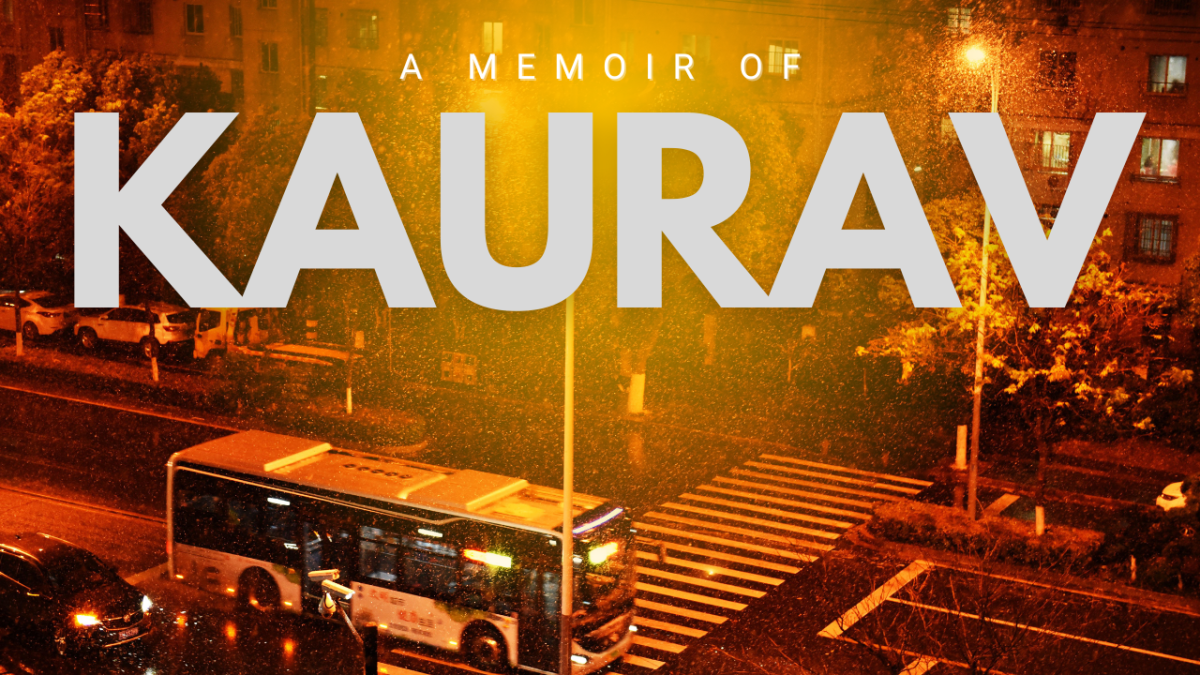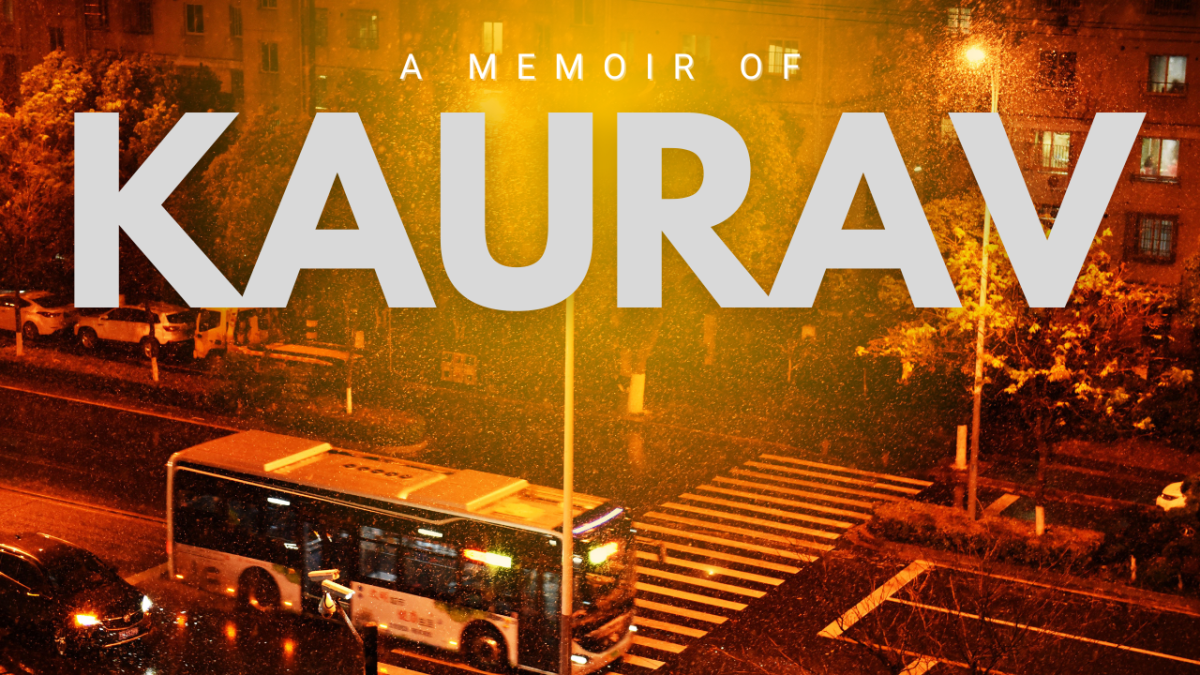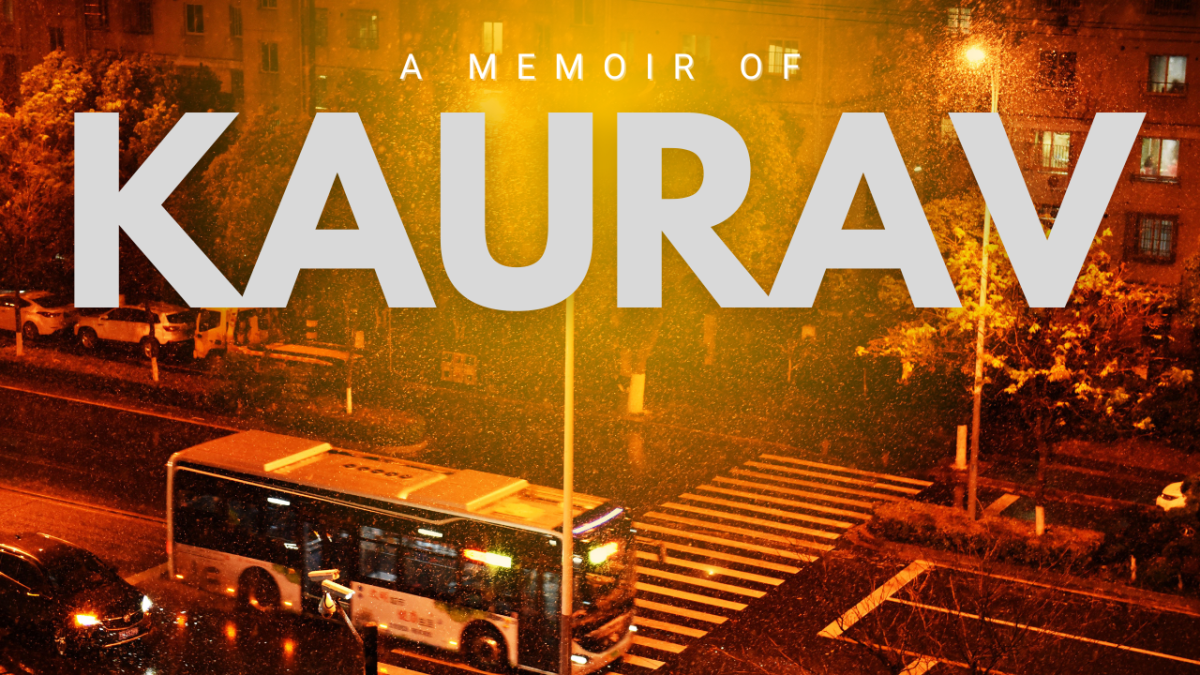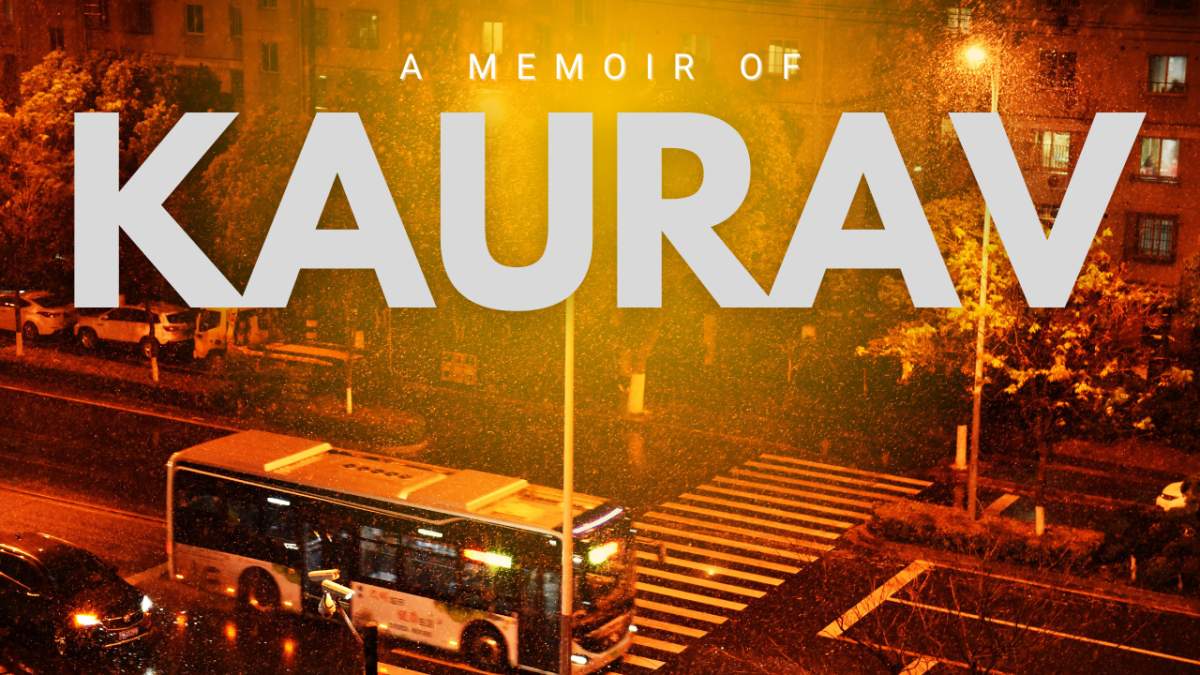Chapter 5: The Weight of Names
The bus swayed through the Karnataka night, and Kaurav found himself thinking of that evening two years ago when everything had changed. Physics had seemed certain then—equations that balanced, forces that could be measured. The theater had been Vismaya's world, not his.
He had gone to Raktakarabi with Sohini, buying her ticket though Vismaya had given him one free. Even then, he realized now, he had been preparing for endings. The play itself had been competent but overwrought, all gesture and no restraint. Tagore's text deserved better.
In the green room afterward, Vismaya had dragged him to meet Roni—Shaunak Sarkar, though he was simply Roni-da to everyone then. Middle-aged, stocky, surrounded by the usual theater crowd seeking his attention. "This is Kaurav," Vismaya had said. "Physics student. He writes well."
The praise had embarrassed him. Vismaya had never mentioned his writing before.
"How did you like the play?" Roni-da had asked, embracing him with unexpected warmth.
The response had come without calculation: "It was good, but since it was Raktakarabi, a bit of restraint on stage would have been better."
He could still see Vismaya's face—the momentary panic of someone who had brought an untrained dog to a dinner party. But Kaurav had meant what he said. He always did.
That night, while Sohini screamed at him over the phone—their relationship dissolving in real time—Roni-da had called. An unknown number. An invitation to lunch. The beginning of this life he now lived.
His father had blamed the grandparents. His mother had endured criticism from her in-laws. His grandmother had declared she would leave him everything. His grandfather, already dead, had remained diplomatically silent. The neighbors had worried about his prospects. Two years later, none of these domestic calculations had resolved themselves.
At that lunch, Roni-da had asked the questions theater people always asked—where did he live, what did he do with his time, the personal inquiries that felt like auditions. Kaurav had answered plainly. He lived with his grandparents. He couldn't explain why. He couldn't explain his name either.
Kaurav. His grandfather had chosen it, but died before explaining the choice. Who named a child after the defeated? His mother called his father Dhritarashtra—blind, blind, sees nothing, understands nothing. A government officer's wife could say such things. A government officer's son could repeat them. Privilege had its small freedoms.
Once, a teacher had questioned the name. "Did you graduate by copying answers?" Kaurav had replied. But with Roni-da, he had shown more restraint. The older man had simply wondered aloud why anyone would burden a child with such a legacy.
The question had sent Kaurav to the books. Rajshekhar Basu first, then Devdutt Pattanaik, then others. The Mahabharata in all its versions. The reading had been thorough but inconclusive. Names, like stories, carried more than their bearers could understand.
At the theater, he had met Parna-di—Shaunak Sarkar's wife, serious and initially indifferent. She had played Nandini the night he first saw Raktakarabi. In time, she would become the repository of his sorrows, though neither of them knew it then.
The bus hit a pothole, jerking him back to the present. Outside, Karnataka passed in darkness. In a few hours, they would reach Mysore. Another stage, another performance, another town where he would be introduced as Kaurav, the young playwright, the assistant director, the one who had left physics for theater.
He closed his eyes and felt the weight of his name settling around him like a costume he had never chosen but had learned to wear. In the epic, the Kauravas had been numerous, powerful, destined for defeat. In life, he was singular, uncertain, traveling through the night toward whatever waited in the morning.
The questions Roni-da had asked that first day remained unanswered. Where did he live? With his grandparents, in a house that would someday be his. What did he do with his time? He wrote, he worked in theater, he traveled on buses through the darkness. Who was he? The boy named for defeat, the physicist who had chosen stories, the grandson carrying forward mysteries he couldn't solve.
The bus continued south, and Kaurav let the movement rock him toward sleep, toward dreams where names might finally reveal their purposes.




Comments (0)
Rate this Article
How do you feel about this article?
Comments (0)
No comments yet
Be the first to share your thoughts!
Join the Discussion